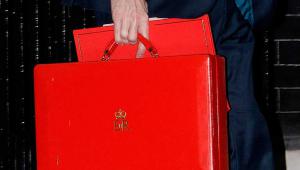Today’s Budget was as usual presented well by a very politically astute chancellor. But even through the mist, it actually reveals that George Osborne is starting to look like he has lost control of our economy, a very dangerous place to be for any chancellor. This Budget is not one from a man on top of his game implementing a Long-term Economic Plan, but more one that is at the mercy of events, some of which are external, but many of which he created himself.
The economic growth forecasts made as recently as November have been downgraded, with 2016 now down at 2.0% from 2.4% and succeeding years being mostly at 2.1% rather than the 2.3-2.5% of the Autumn Statement forecasts. These falls from what were pretty poor growth projections in any case, are now lower than the UK long-term average. If business surveys are to be believed they may be downgraded further in the future.
The major reason for all this are the strong reductions in productivity potential and therefore forecasts made by the OBR. This is a problem at least partly made in No 11. Certainly there are difficulties in the global economy that affect the UK but the reductions to UK growth forecasts are bigger than the downgrades to global growth.
The debt ratio was, we were promised, to come down each year and the chancellor has had to admit defeat on that. He has been determined – probably unwisely in the opinion of many economists – to tie himself to saying the deficit will be no more by 2020 and has produced forecasts today to achieve this, that are slightly hard to believe (going in a single year from a deficit of £21.4bn to a surplus of £10.4bn). To get there he is not only cutting public spending further – by £3.5bn by the end of the period – but has used every trick in the Treasury book – like altering the timing of when hoped for extra revenues come in from larger corporates.
Most important is a continued failure to rebalance the economy away from being consumption driven – an Osborne promise. It still seems that it is the consumer (household consumption) that is the engine he is relying on: the savings ratio is forecast by the OBR to be a very low 3.2% in 2016Q2 and to stay in the 3% range throughout the forecast period, with net trade also having a negligible or even negative impact. Meanwhile, business investment growth falls from a predicted rise of 7.1% in 2016 in the November forecast to just 2.6% now.
Announcements around infrastructure investment are welcome but much of the noise around transport is about funding development projects and as the FT says “they will not be built for years”. Spades in the ground that could boost the economy are a long way off. And one may query decisions that take £4.1bn over the period away from the disabled, about the same amount of the cost of two items that will mainly help the better off – raising the higher rate threshold and making ISAs more generous.
The chancellor’s constant promise has been that cutting spending would lead effortlessly to growth. It appears that today he has been forced to admit that decent growth is not yet forthcoming. He may want to ponder on that.





















